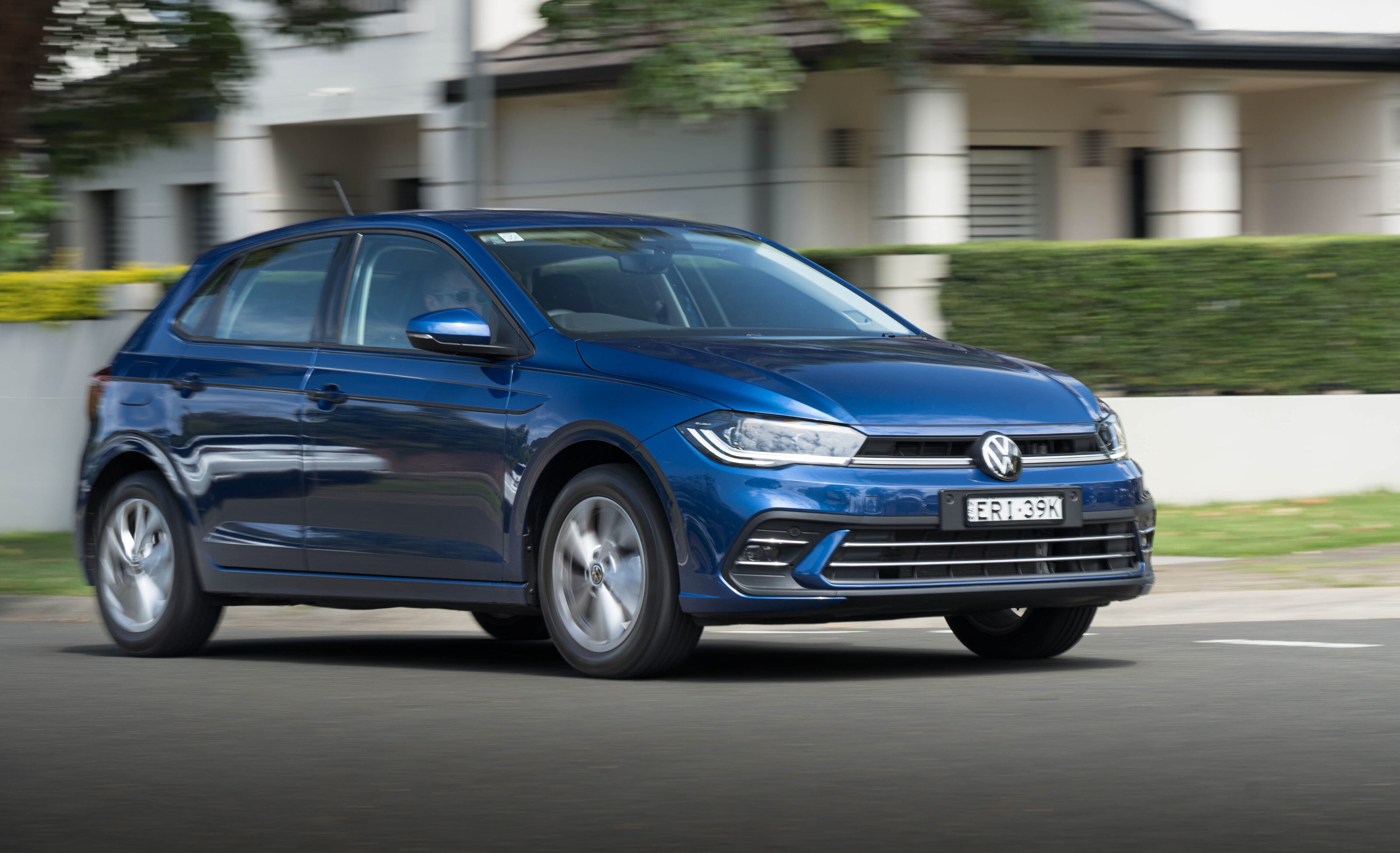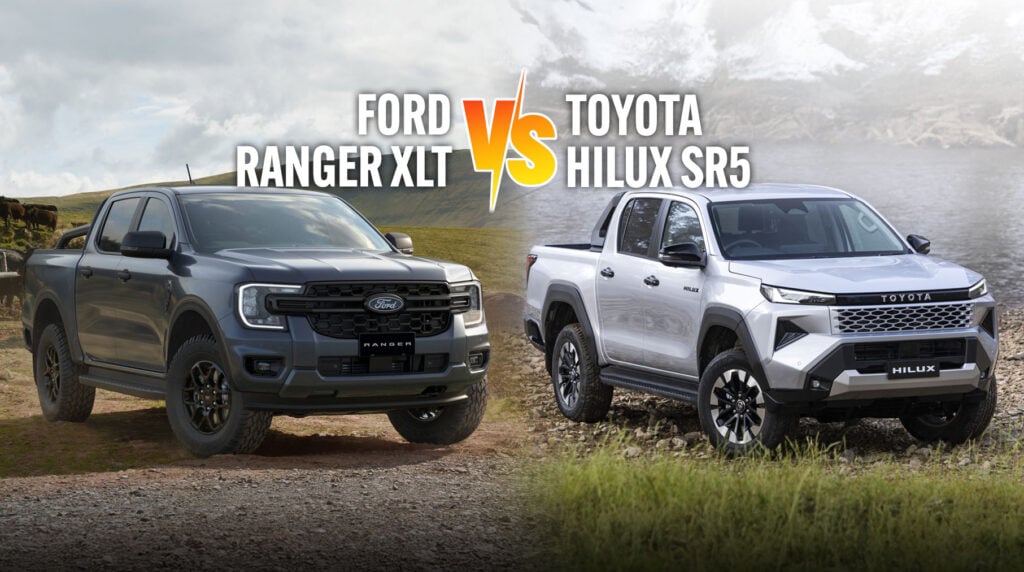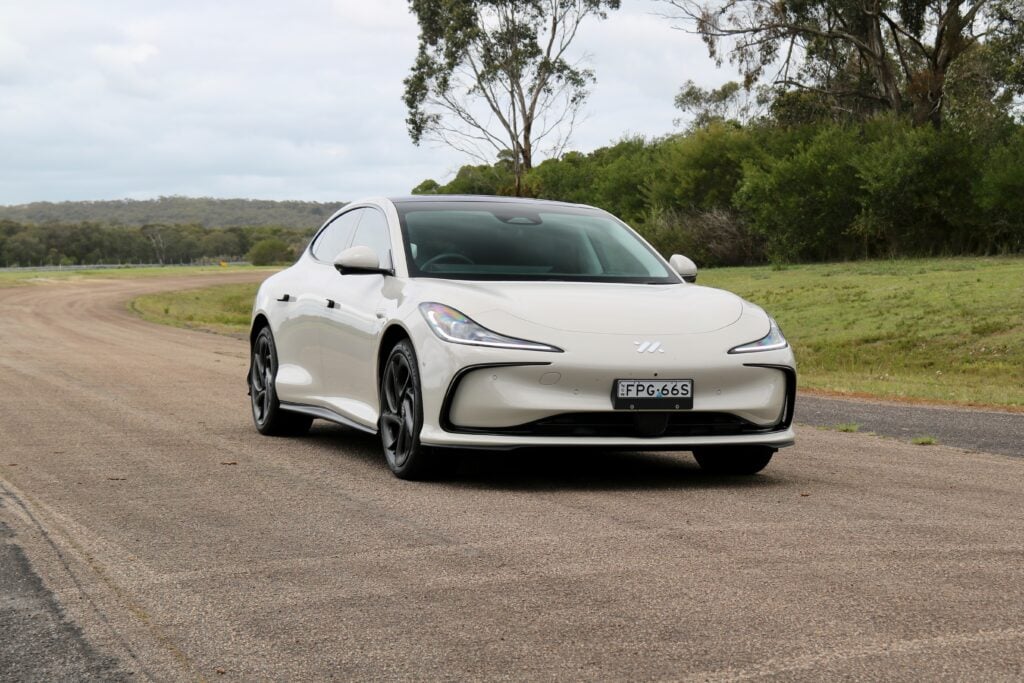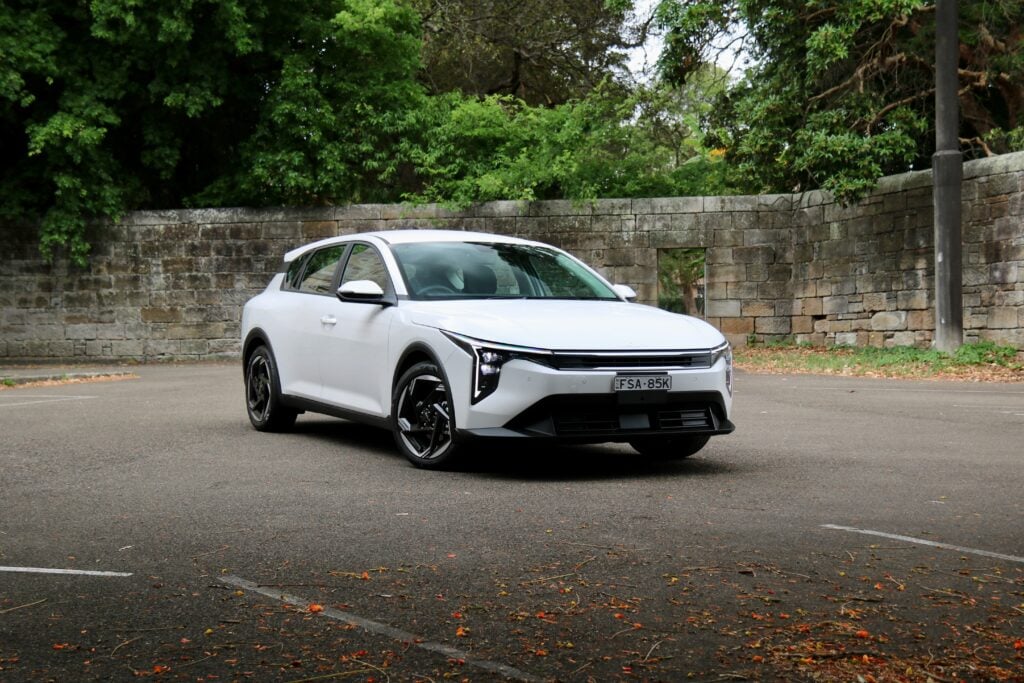Score breakdown
Things we like
- Great engine
- Excellent safety tech
- Fun to drive
Not so much
- Slightly hesitant DSG in traffic
- Service costs
- Flaky wireless smartphone integration
Volkswagen’s Polo used to be everywhere. Partly because it was amazingly cheap for such a well-engineered car but partly because it wasn’t especially pricey compared to its rivals.
Times change and they have done so rapidly, with light cars falling from grace at a rate that has made my head spin. Not everyone is a fan of these things, dismissing them as city cars or shopping trolleys.
In 2023, there aren’t many left and the ones that are, with one or two notable exceptions, high quality, well-engineered and five-star-safe cars. They’re also swimming in the same pricing waters (again with a couple of exceptions) but hoo-boy, when a light car price starts with a three, you know it’s a niche rather than a mainstream proposition.
Thing is, sometimes you don’t want an SUV. You just want to be different. You want a hatchback. These things are now so rare that a carmaker recently outlined the advantages of a hatch to a room full of people who grew up driving them.
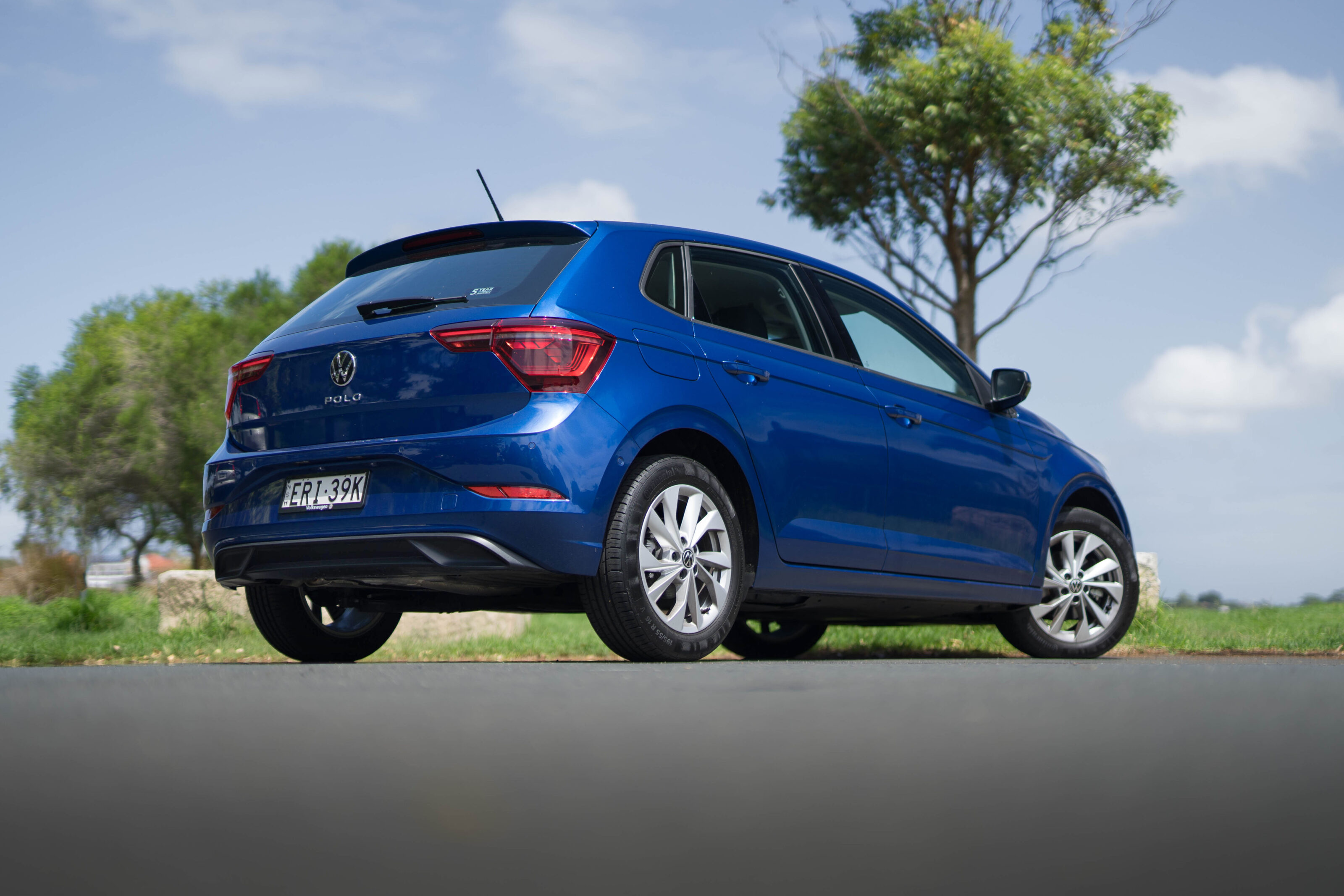
JUMP AHEAD
- How much is it, and what do you get?
- How do rivals compare on value?
- Interior comfort, space and storage
- What is it like to drive?
- How much fuel does it use?
- How safe is it?
- Warranty and running costs
- VERDICT
- Specifications
How much is it, and what do you get?
My mum’s VW Polo cost $14,990 a few years ago. This one is $31,200 before on-road costs. It’s got a lot more equipment and is way nicer to drive, which is saying something because the parental Polo is still a pretty good car.
You can buy the Life with a five-speed manual (and get less power as a result) or a seven-speed DSG but I’m here to tell you – don’t. Stepping up to the Style is worth the extra money, especially if you consider that Life trim doesn’t include reverse cross-traffic alert.
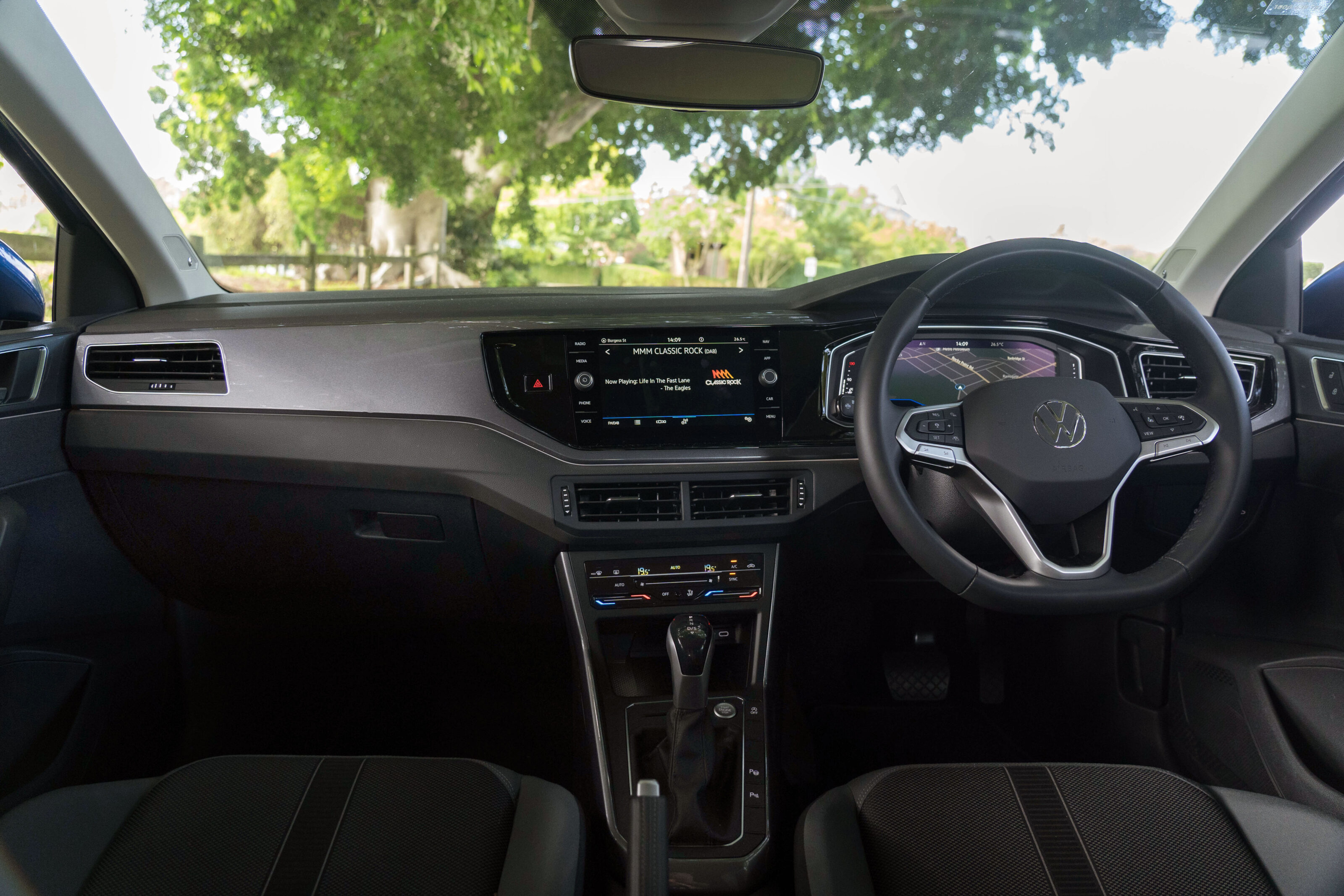
| 2023 Volkswagen Polo Style standard features | |
|---|---|
| 16-inch alloy wheels | 10.25-inch digital instrument panel |
| 6-speaker stereo | Front and rear parking sensors |
| Matrix LED headlights | Lane centring |
| Cloth seats | Auto parking |
| Reversing camera | Space-saver spare |
| Auto headlights | Dual-zone climate control |
| Auto wipers | Ambient interior lighting |
| Adaptive cruise control | Wired Apple CarPlay |
| DAB+ digital radio | Wired Android Auto |
| 8.0-inch touchscreen | Wireless charging pad |
It’s a pretty decent spec list, which is kind of expected at this price level. The much-maligned but really-not-that-bad VW entertainment system is housed in an 8.0-inch touchscreen, while the Style picks up the larger 10.25-inch digital dash. It also has – staggeringly – Matrix LED headlights, which are very expensive options on other VW Group cars.
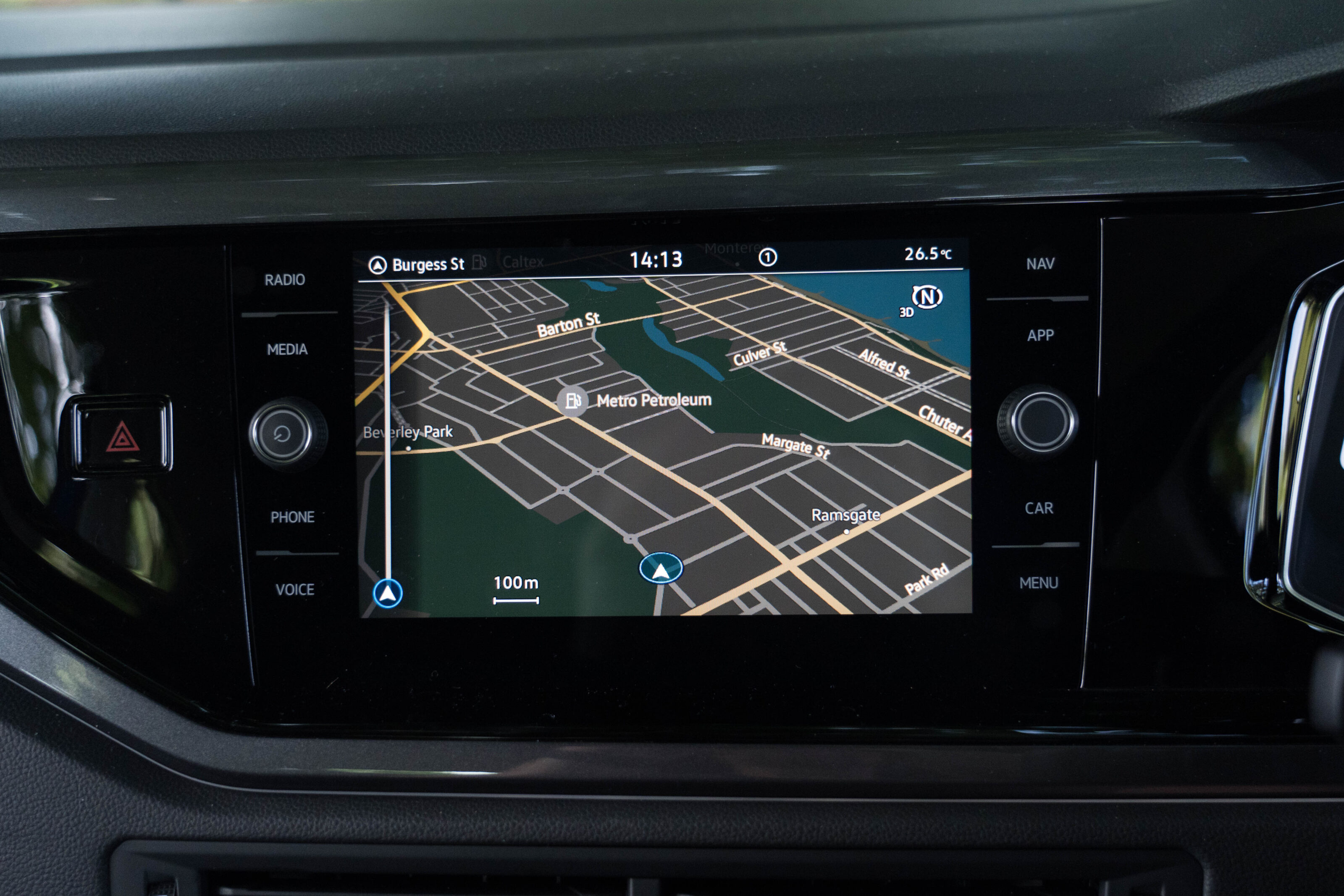
Yes, if you have wireless Apple CarPlay it’s flaky and annoying but worse things happen at sea.
The $1900 Sound and Tech Package adds satellite navigation, voice control, removes the need for wires when running Apple CarPlay and Android Auto, adds keyless entry and start, and Beats-branded speakers (still six of them).
You can specify a sunroof for $1500 to the detriment of rear headroom.
Reef Blue, Reflex Silver, Smokey Grey, Deep Black Pearl and Vibrant Violet are $600 options. I kind of dig the purple following an amusing argument with colleague John Law but the Reef Blue of this test car was quite nice.
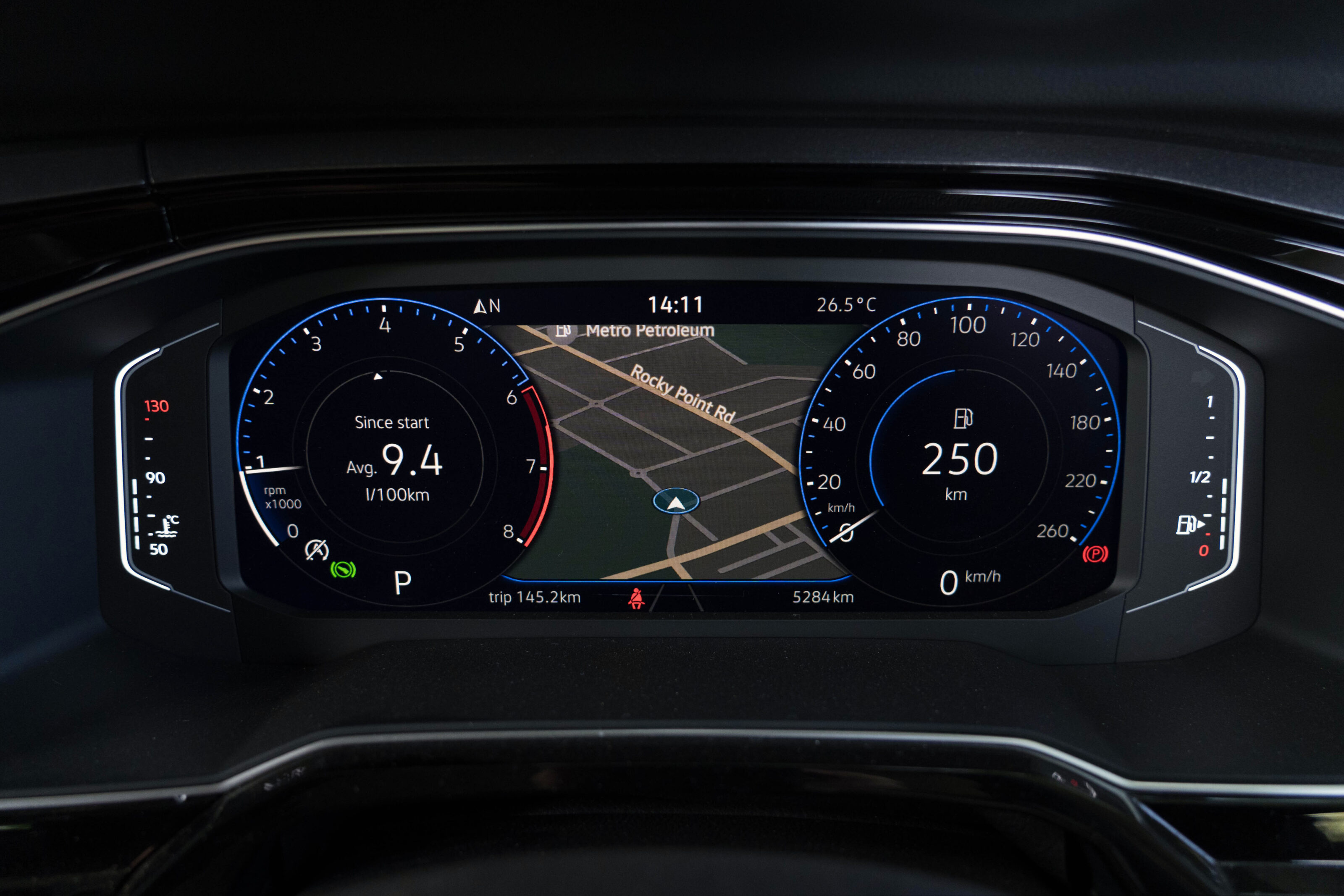
How do rivals compare on value?
Right between the pricing eyes is the Toyota Yaris, a car we considered massively over-priced at its launch but now pretty much where all the cool kids are. For $31,100 before on-road costs, you can have the ZR Auto, which is an unimpressive thing to drive with its 1.5-litre engine and continuously variable transmission. It rides well and the servicing is cheaper, though.
At $33,100 (also before on-road costs) you can have the more sensibly motivated hybrid and save money on fuel but you won’t have as much fun driving it. Or, probably, looking at it, but that might just be me.
Citroen still offers the quite lovely C3. It has a beautiful ride, fantastically comfortable front seats and all the quirk you could want for $32,367 (before on-road costs). One imagines you’ll be waiting a while for one but for some, it will be worth the wait. For others, it might all be a bit much, but it’s worth investigating.
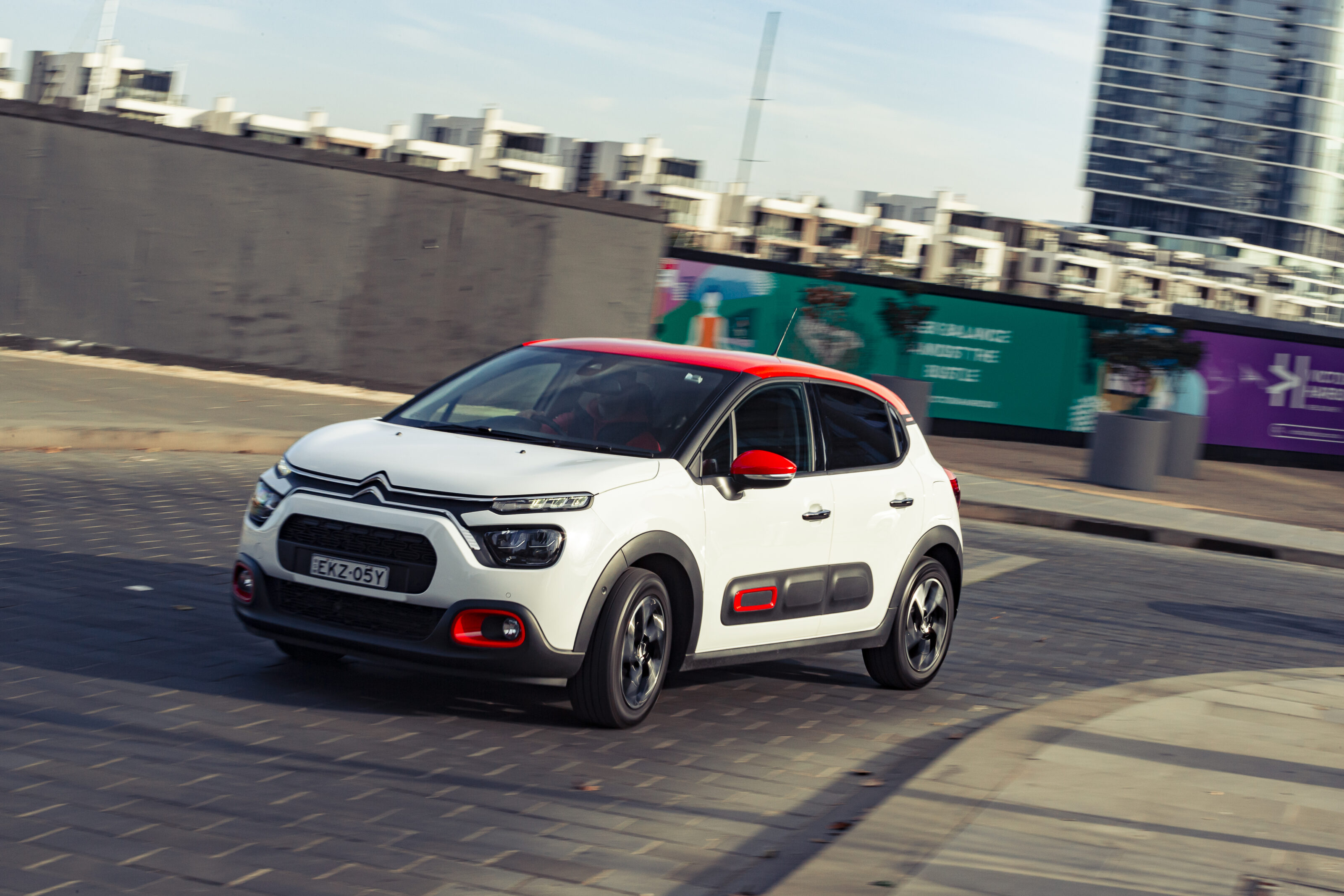
Mazda’s 2 is also still in the ballpark, with the top-of-the-line G15 GT jumping in the pool at a slightly unexpected $30,465 drive-away. It matches the Polo for warranty, if not for interior space and more modern architecture, but it’s still a charming little car that continues to have a part of my heart.
And finally the one-time king of the segment, the ancient but dependable Kia Picanto. The base model is available with a slightly gasping 1.2-litre paired with a five-speed manual for a four-speed auto. The turbocharged GT is great fun but manual only.
The Kia’s two main advantages are both money-related – it’s quite a bit cheaper and it has a longer warranty. It can’t match the Polo for interior quality, though, but you can hardly blame it given the yawning price gap.
I guess you could look at an MG 3, but you wouldn’t be reading this review if you were interested in that. I’m not sure anyone reads reviews of MG 3s because they’re all done by influencers or a journalist who has snagged a trusting owner’s car for a few days. All I can say is that it’s very cheap and popular.
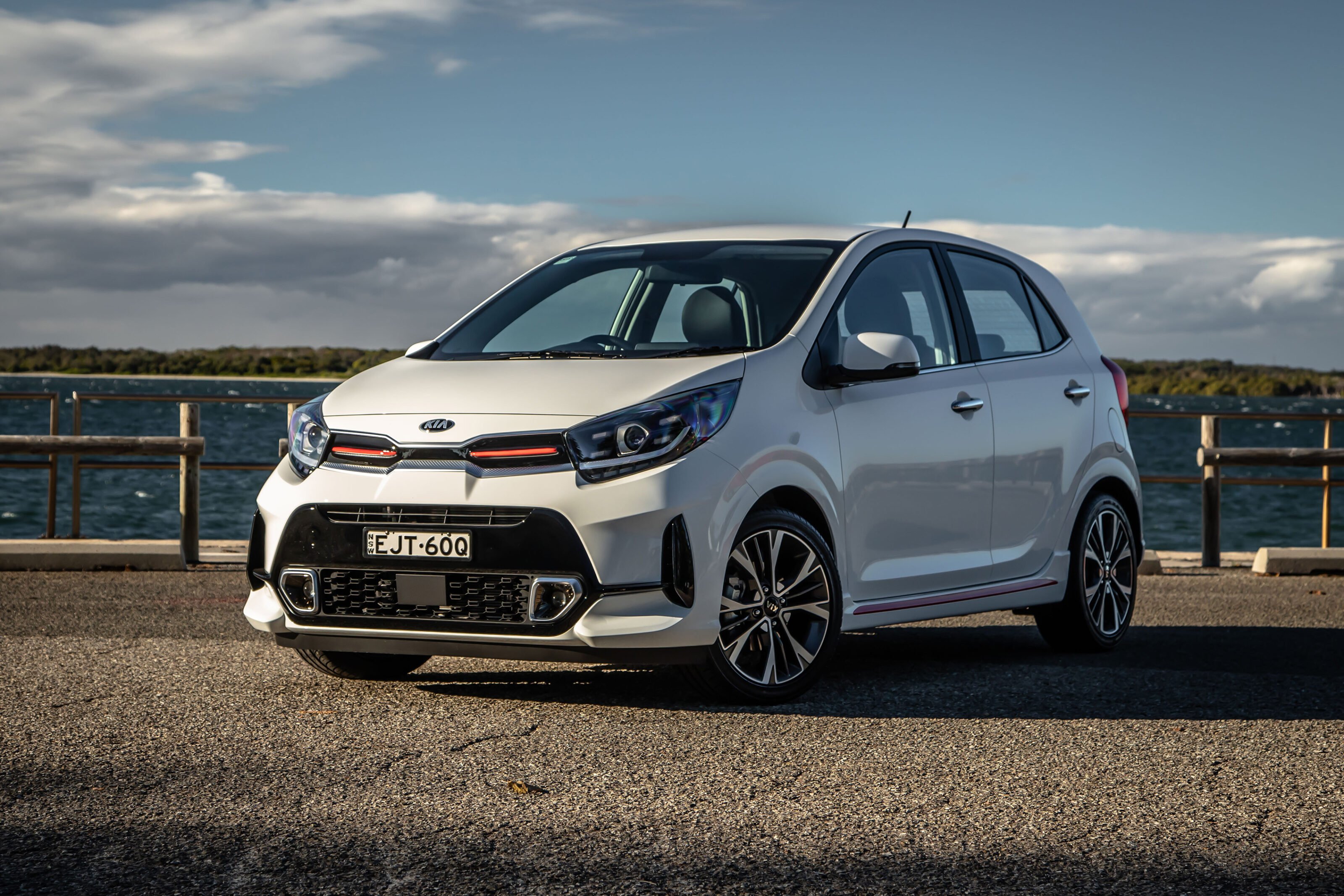
Interior comfort, space and storage
For such a small car, the Polo has a lot of space inside. While not quite matching the heroics of the new and related Skoda Fabia, it’s very close.
Starting with the improbably large boot. It’s got a whopping 351 litres, eclipsing most compact SUVs and some mid-size ones. When you fold down the 60:40 split-fold rear seats, you have 1125 litres to play with and the two-position boot floor can get you closer to a flat loading area in the upper position.
I guess the bigger surprise is the rear seat space. While the climb-in isn’t always graceful, once installed my 180cm frame and medium build are quite happy. I’ve got enough leg and knee room to clear the front seat set for my driving position and good under-thigh support.
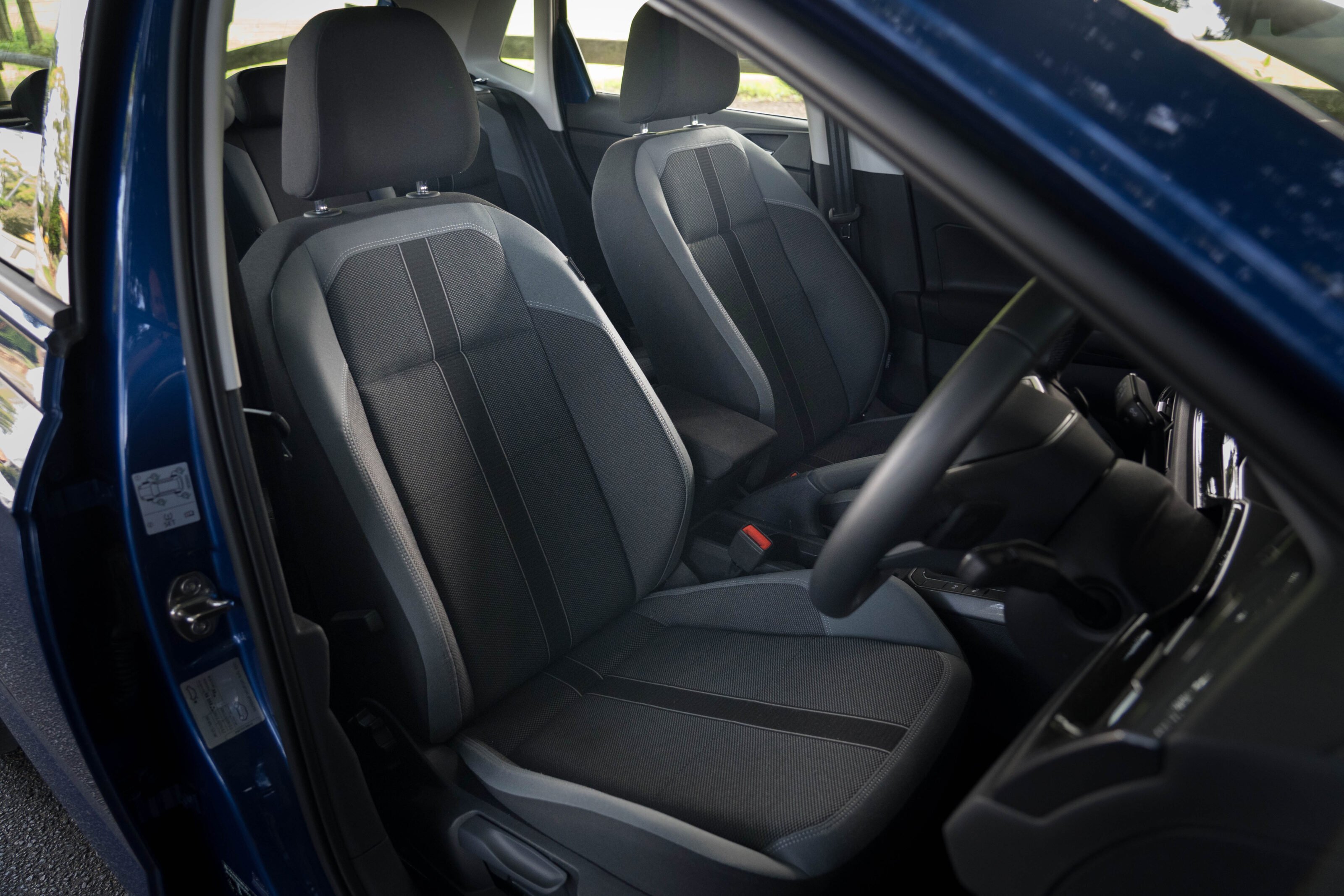
That’s about as far as support goes, however, as the rear seat lacks an armrest and therefore proper cup holders. You also don’t get air vents but more industrious types will point to the dual USB-C chargers and the wide availability of USB-powered fans. I’d probably use them to charge a phone or two, but you do you.
Headroom is impressive, though the windows aren’t huge so taller folks might feel their heads close to the header rail.
One of the main differentiators in the Style, when compared to the Life, are the more sporty-looking seats that are covered in a different fabric. I am a huge fan of fabric seats so I’m not going to whine about the lack of leather, which at this level would likely be a bit yuck anyway.
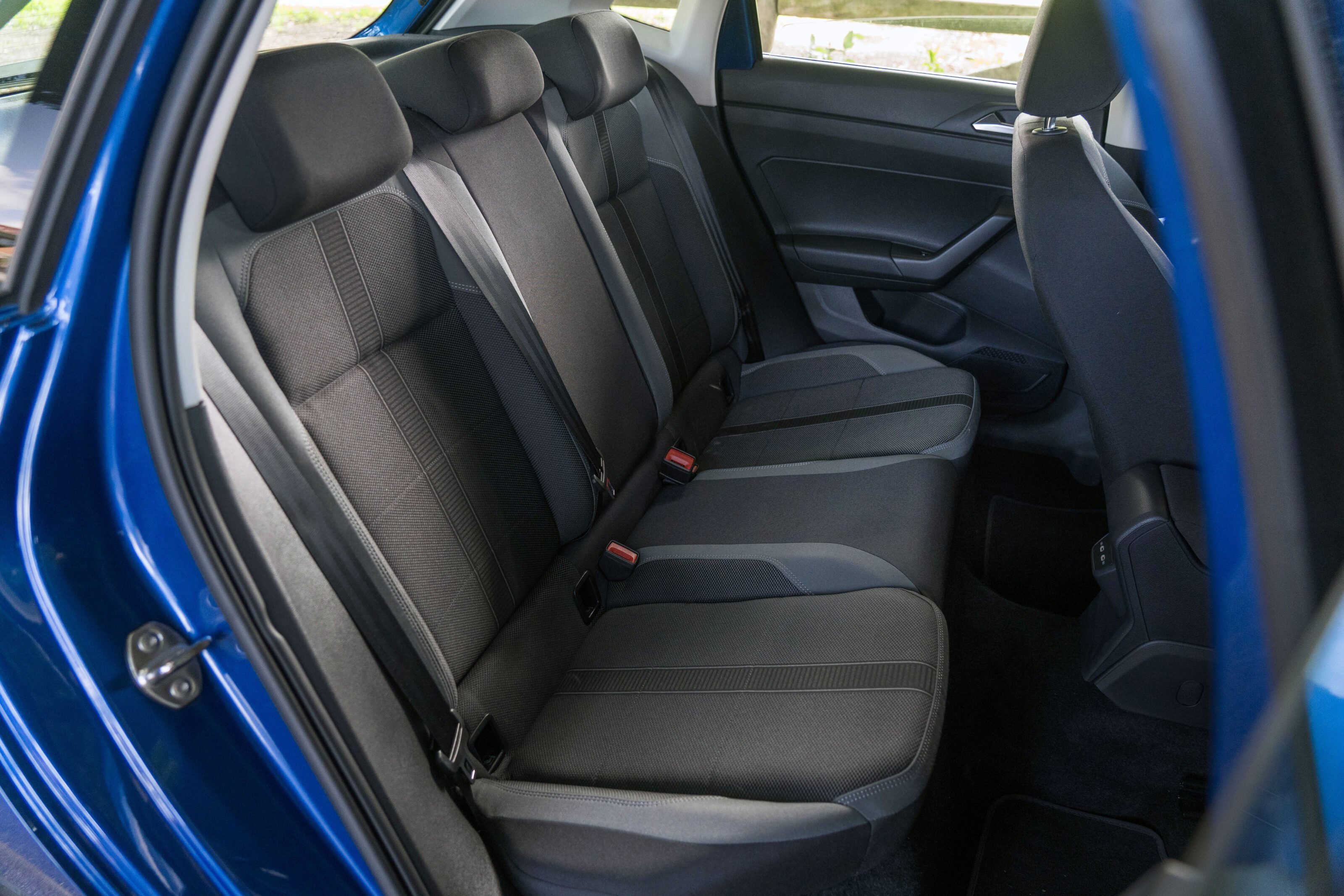
The seats have more bolstering, too, and are properly comfortable for longer journeys. I think they’re worth the step up from the Life.
Between the front seats are VW’s whacky hexagonal cup holders and a handbrake. I also like proper handbrakes for reasons that I’ll not trouble you with. Under the centre console is a wireless charging pad and your bottles can go in the big pockets in the doors.
I’d like a more uniform approach to plastics and less of the scratchier stuff, but the bits you touch are nice and the leather steering wheel and gear selector are a welcome touch. I think it’s a nicer place to be than its price competitor from Toyota, the Yaris (wild, I know) and it’s certainly roomier.
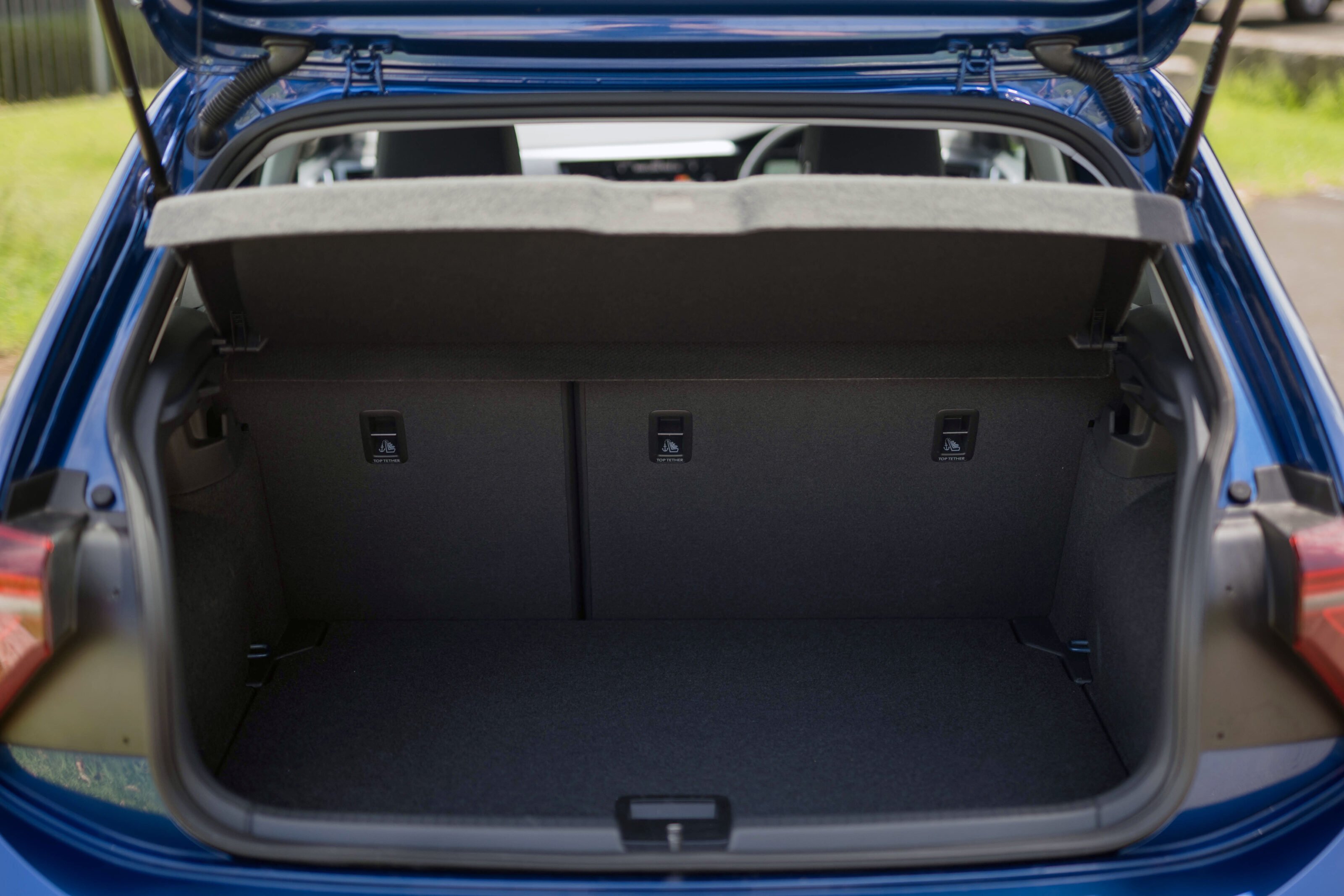
What is it like to drive?
For most people, it seems scarcely possible that a 1.0-litre engine could be in the same region as a sentence describing a car that’s fun to drive. I was always a fan of the old Renault Clio with its 1.0-litre base model, but that thing ran on mountain bike tyres, had a manual gearbox and was the slowest fun you could have.
| 2023 Volkswagen Polo Style drivetrain | |
|---|---|
| Engine | 1.0-litre 3-cylinder turbo-petrol |
| Drive | front-wheel |
| Transmission | 7-speed dual-clutch |
| Power | 85kW @ 5000-5500rpm |
| Torque | 200Nm @ 2000-3500rpm |
| 0-100km/h | 9.5 sec (estimate) |
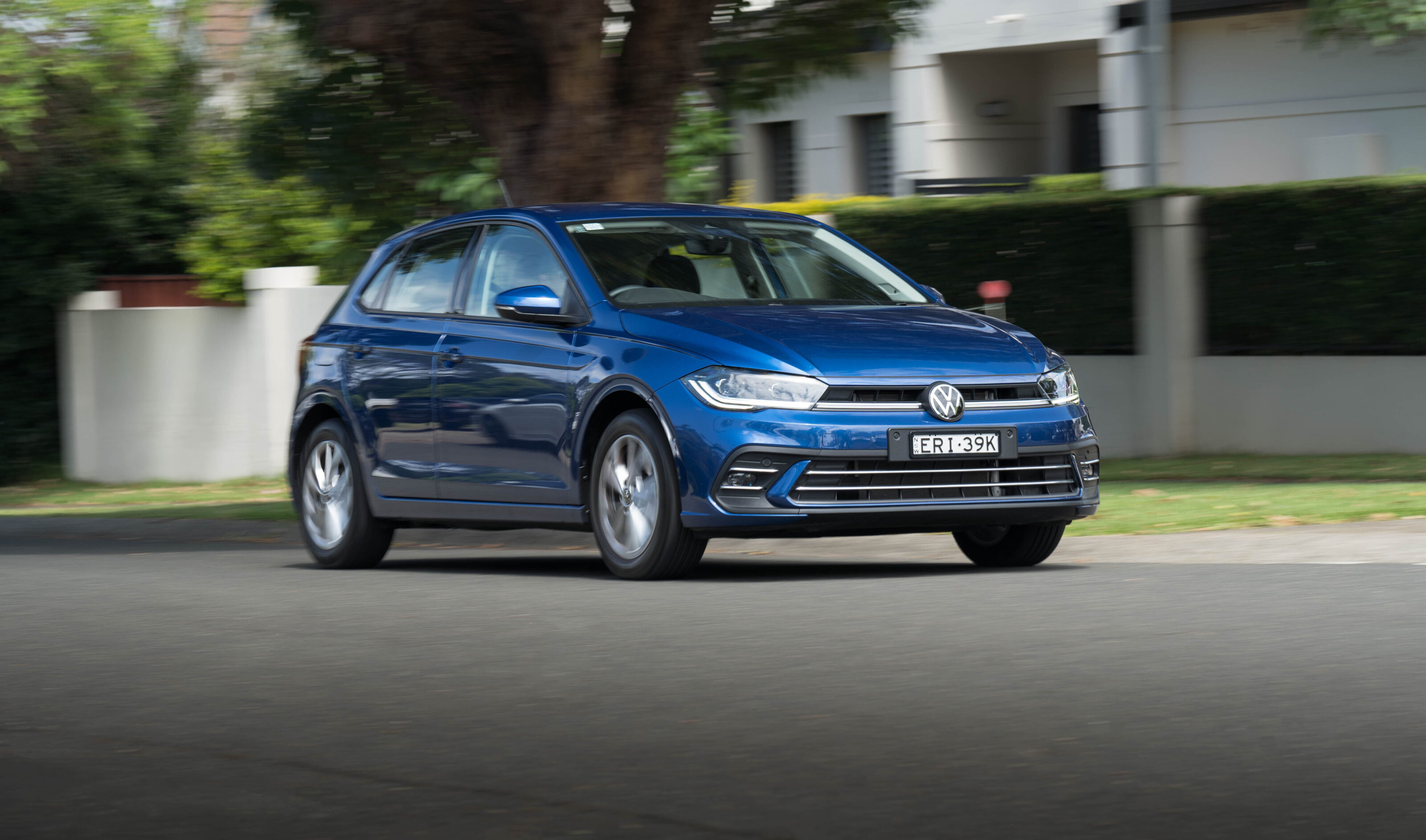
But this is a turbocharged VW 1.0-litre three-cylinder, which rather ups the game for engines of this size. With 85kW and 200Nm wrangled by a seven-speed dual-clutch automatic, this isn’t a wait-wait-wait car but more of a wait-go-go-go car.
In years past, a car with this size of engine would be for those never in any kind of hurry whatsoever but the Polo’s sprightly performance is close to effortless. The seven-speed transmission responds well to your right foot and I don’t think I ever pulled a paddle to get the gear I wanted when out on the motorway. It needed occasional encouragement in traffic but was much happier when put in Sport mode.
Most of all, you get the feel of a much bigger car with a correspondingly larger engine. Other cars in this class still feel their size in the way they drive, which isn’t necessarily a bad thing, but it’s heartening to know that VW still over-engineers its small cars.
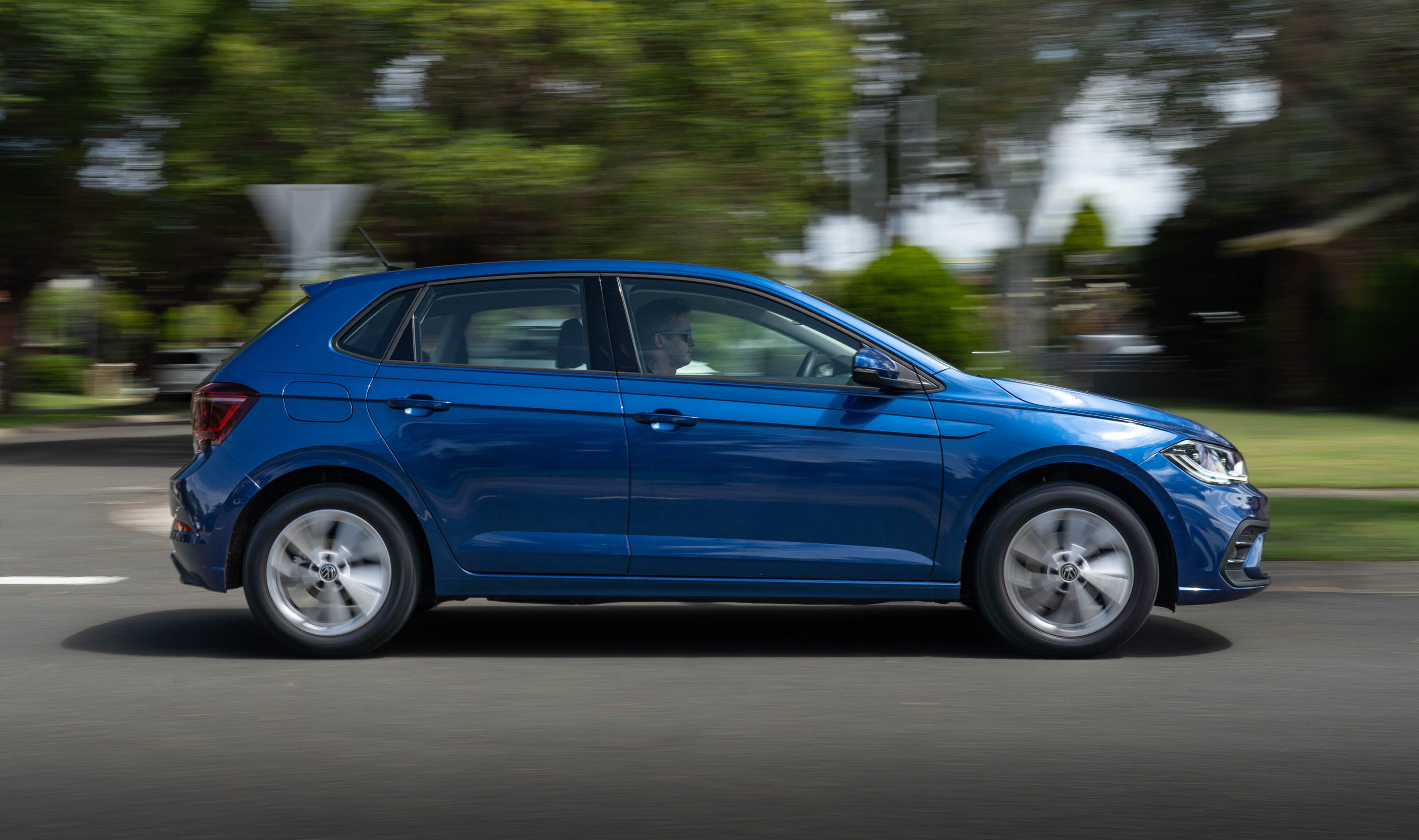
The most impressive thing about the car is the chassis, though. While the engine keeps things moving at a fair clip – and I sometimes wondered if there is any other “standard” hatch like it for pace – the ride and handling balance is there to take advantage.
As I’ve already said, it feels like a bigger car, riding the bumps and lumps of the suburbs and our appalling motorway surfaces while cheerfully cornering on fun B-roads without dissolving into messy understeer.
It rides almost as well as the Citroen C3, which I consider the class benchmark (feel free to fight me in the comments) while cleaning up on the handling side with much better steering and a more composed front end.
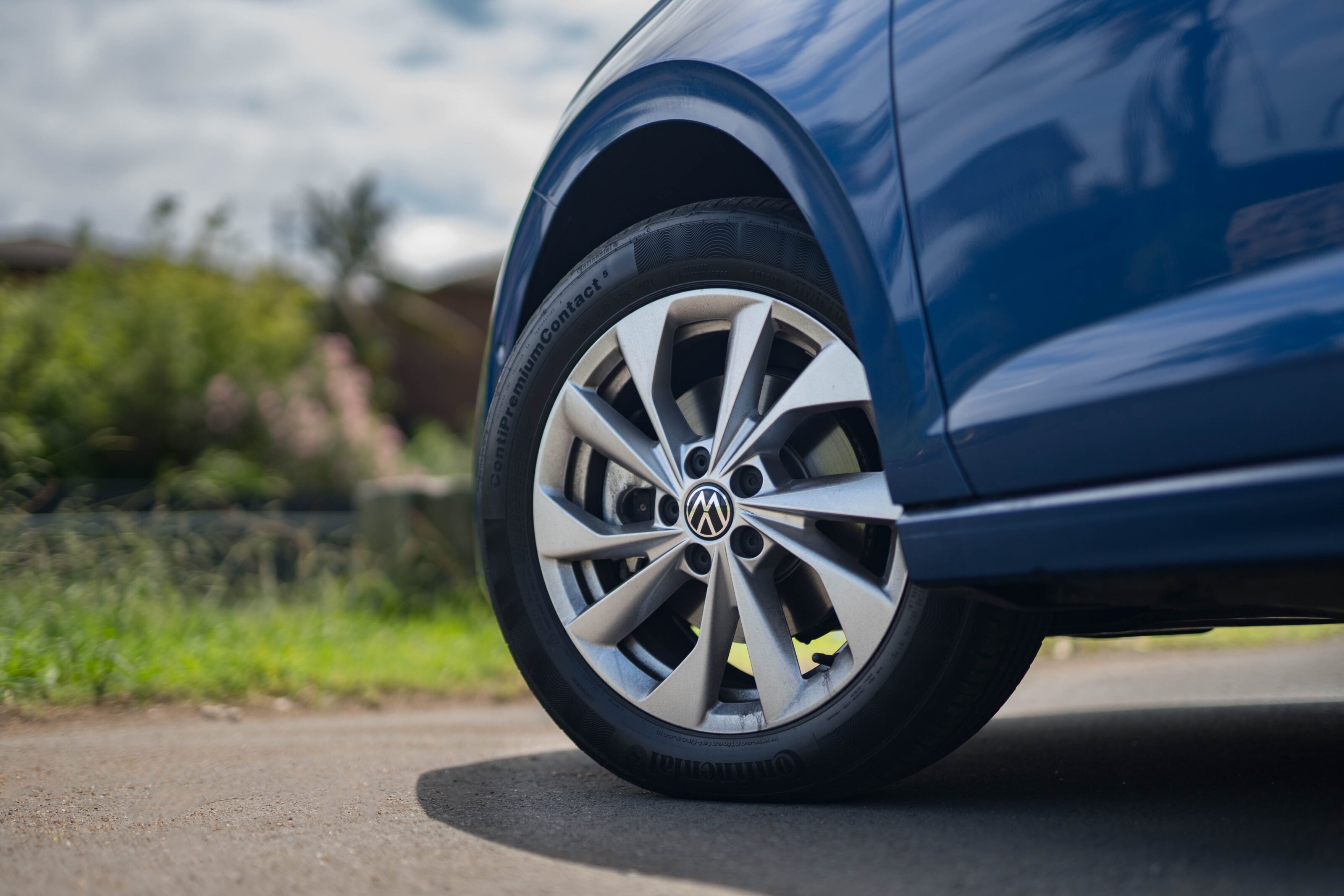
How is it on fuel?
Volkswagen’s ADR testing yielded a 5.4L/100km figure on the combined cycle. The real world saw an indicated figure of 7.2L/100km in a mix of suburban running and a drive up to the Blue Mountains west of Sydney.
| 2023 Volkswagen Polo Style fuel economy | |
|---|---|
| Fuel economy (ADR combined) | 5.4L/100km (combined) |
| Fuel economy (trip computer) | 7.2L/100km |
| Fuel type | 95 RON premium unleaded |
| Fuel tank capacity | 40 litres |
It’s a reasonably solid miss but I was punting it around a bit, so you might do better.
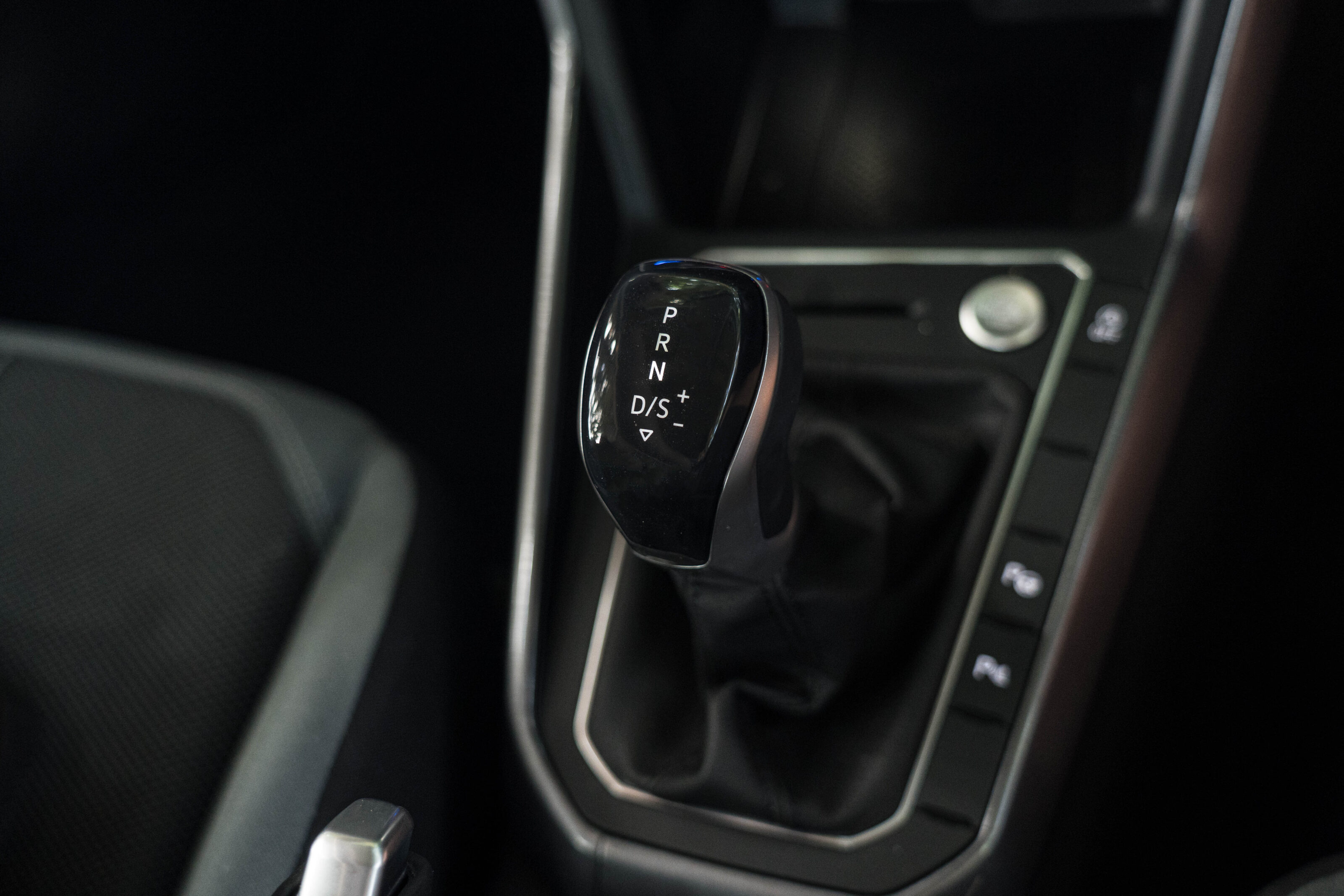
How safe is it?
The Polo scored a five-star ANCAP safety rating in 2022 owing to the centre-front airbag installed as part of a wider tech upgrade for the car.
| 2023 Volkswagen Polo Style safety features | |
|---|---|
| 7 airbags | Reverse cross-traffic alert |
| ABS | Blind-spot monitoring |
| Stability and traction controls | Lane centring |
| Forward AEB (up to 80km/h) | Adaptive cruise control |
| Distance warning | Fatigue detection |
The forward AEB works at up to 80km/h and includes both pedestrian and cyclist detection.
For child seats, there are two ISOFIX points and three top-tether anchors.
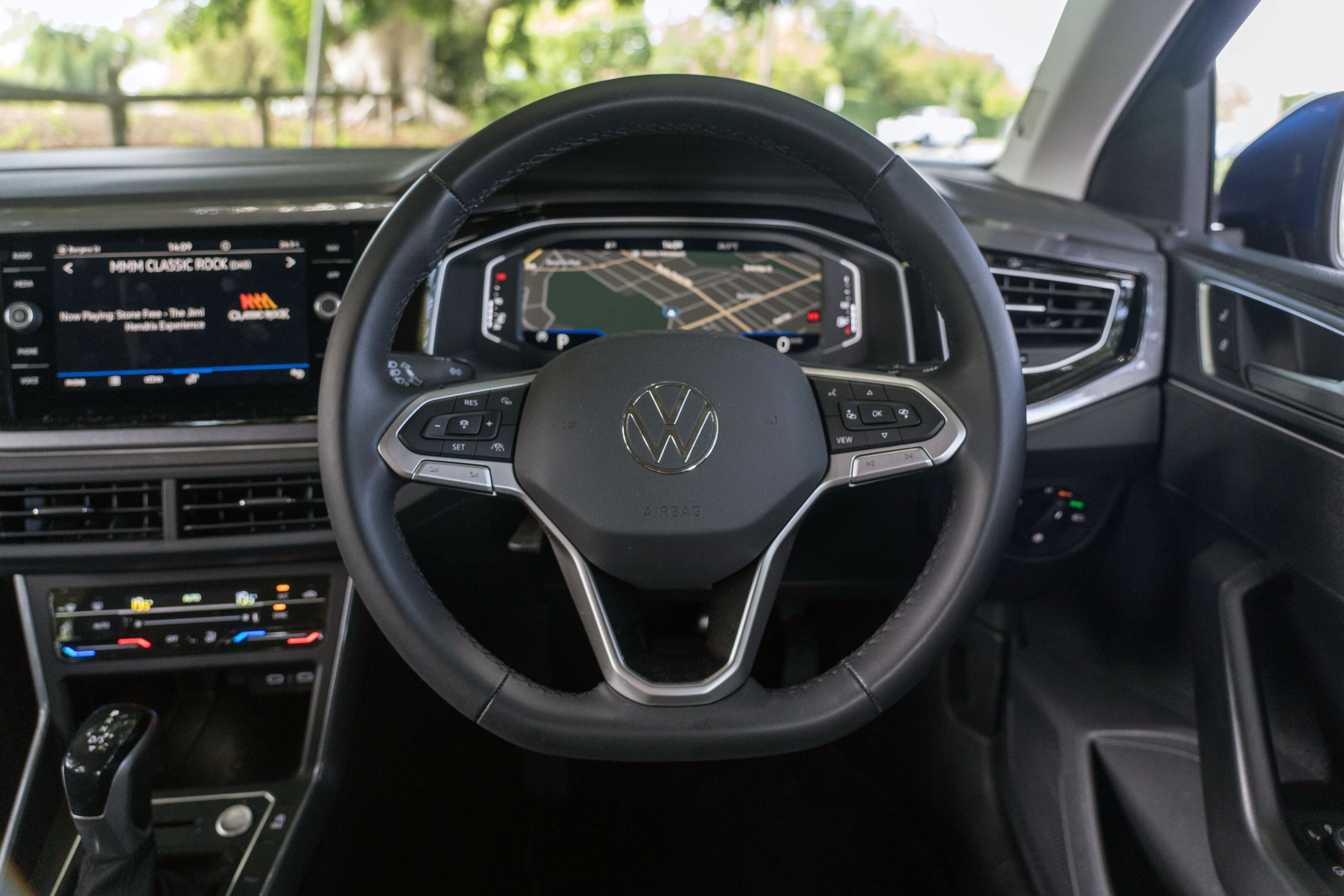
Warranty and running costs
Volkswagen offers a five-year, unlimited-kilometre warranty which very nicely matches up with just about everybody else in the segment, except for Kia soldiering on with its seven-year warranty.
A five-year pre-paid service plan for the Polo comes out at $2300 (up slightly since the updated model’s launch) and it’s not especially cheap at $460 per year. It does save nearly $800 off pay-as-you capped-price servicing, however, and that’s worth it I suppose. A three-year plan weighs in at $1350, saving nearly $300 at an average of $450 per year.
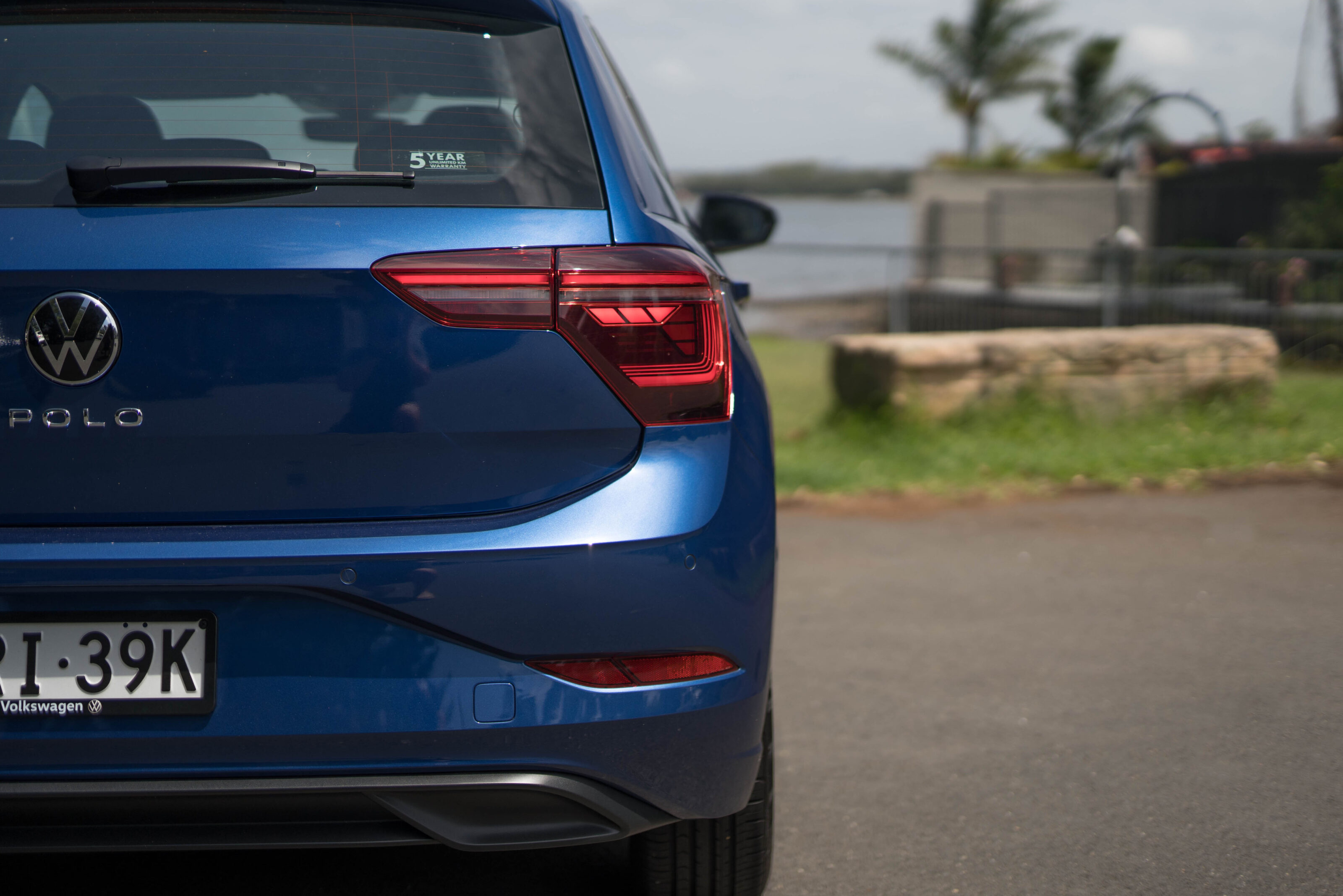
VERDICT
I still think the Polo is a great car and in a straight battle with the Yaris, I would declare it the winner and enter into a deathmatch with my colleagues to defend it.
Although it’s hard to believe it costs this much money in isolation, the rest of the market has really caught up. The Fabia is a $40K proposition now, so all hope of affordably-priced Euro cars is gone. But, as I will always say, like the Yaris and Fabia and C3, you have to find the customer’s level. People aren’t buying these cars often and when they do, they’re doing it because they offer big car safety tech and refinement.
The Polo delivers all of that and is fun to drive while it’s at it. The only thing that comes close is its more expensive Audi A1 sibling.
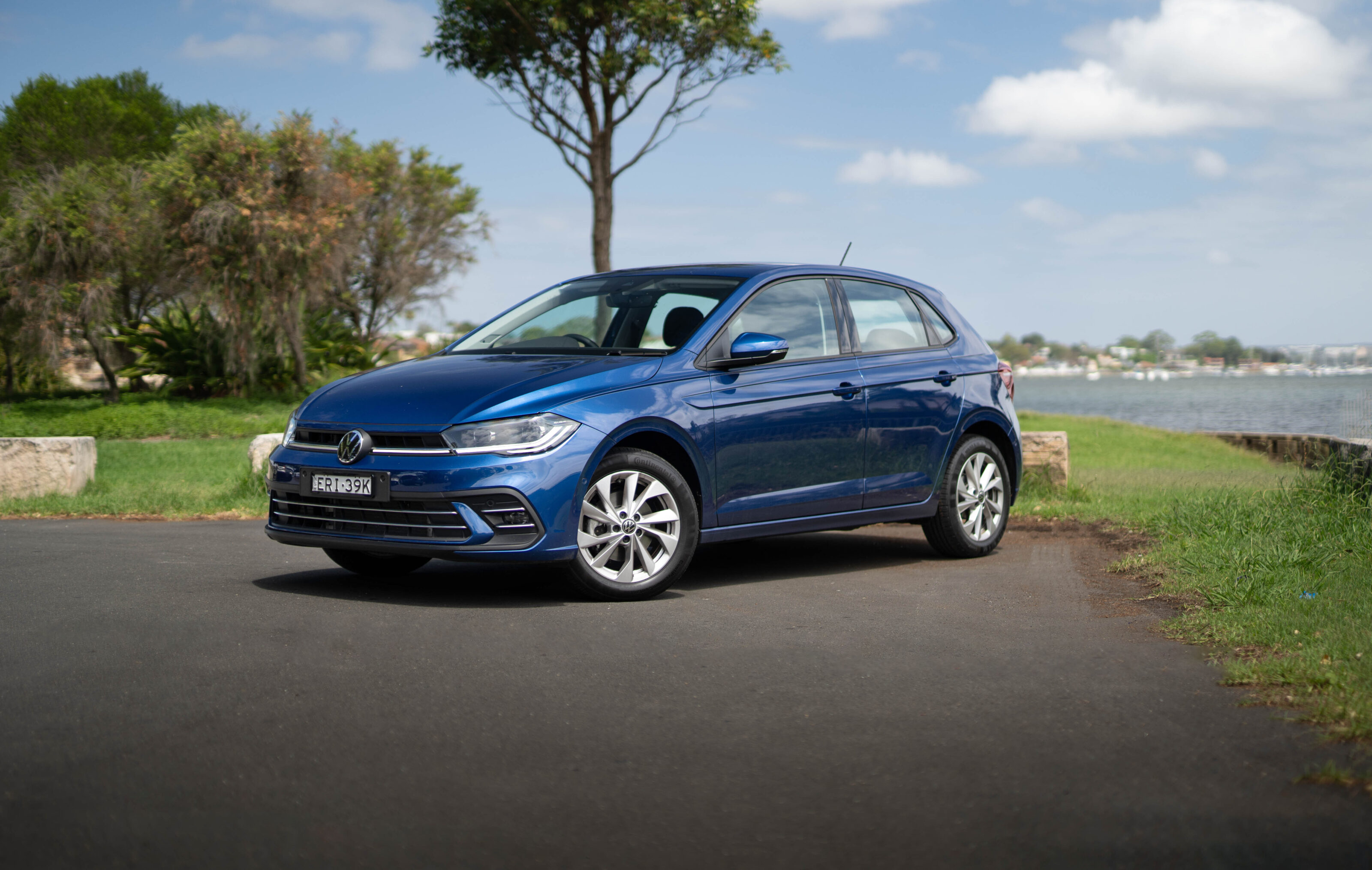
| 2023 Volkswagen Polo Style specifications | |
|---|---|
| Body | 5-door, 5-seat light hatchback |
| Drive | front-wheel |
| Engine | 1.0-litre 3-cylinder turbo-petrol |
| Transmission | 7-speed dual-clutch |
| Power | 85kW @ 5000-5500rpm |
| Torque | 200Nm @ 2000-3500rpm |
| Bore stroke (mm) | 71 x 75.6 |
| Compression ratio | 10.5 : 1.0 |
| 0-100km/h | 9.5 sec (estimate) |
| Fuel consumption | 5.4L/100km (combined) |
| Weight | 1165kg |
| Suspension | MacPherson struts front/torsion beam rear |
| L/W/H | 4080mm/1751mm/1450mm |
| Wheelbase | 2564mm |
| Brakes | ventilated discs front / solid disc rear |
| Tyres | 195/55 R16 Continental Premium Contact |
| Wheels | 16-inch alloy (15-inch steel spare) |
| Price | $31,250 + on-road costs |
Score breakdown
Things we like
- Great engine
- Excellent safety tech
- Fun to drive
Not so much
- Slightly hesitant DSG in traffic
- Service costs
- Flaky wireless smartphone integration
We recommend
-
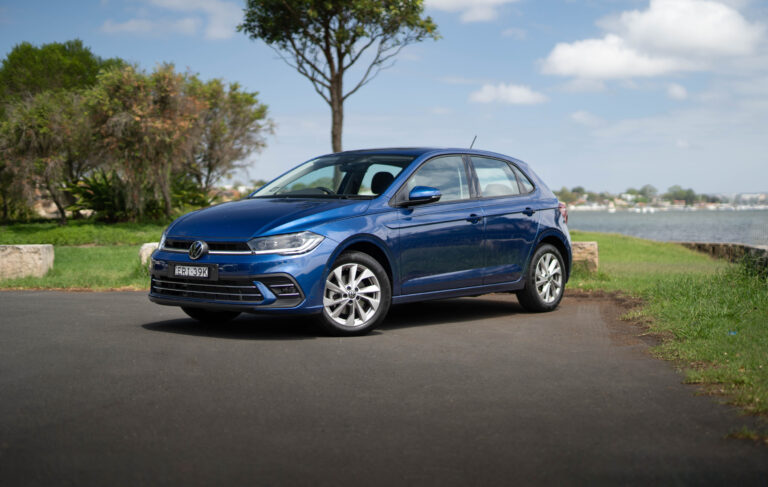 News
News2024 Volkswagen Polo gets more safety equipment and physical buttons
The latest tweaks to Volkswagen's smallest hatch see more safety and buttons added
-
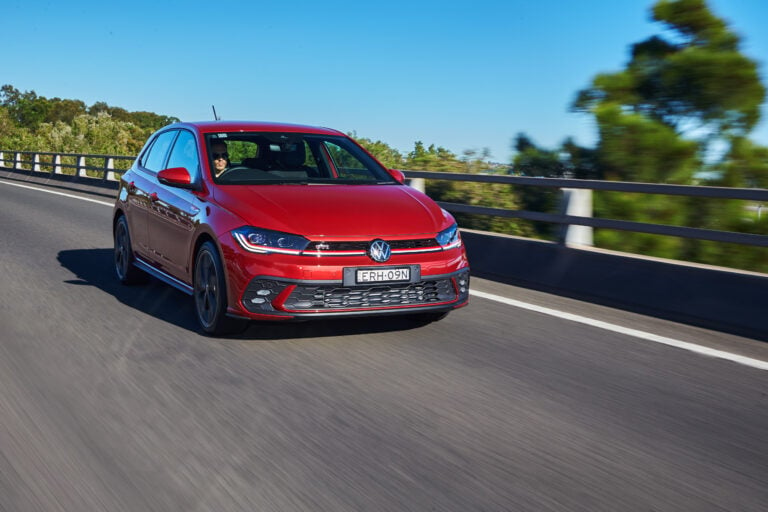 Reviews
Reviews2022 Volkswagen Polo GTI review
On the road and on the track, VW's performance Polo has gone up a gear in tech and price
-
 News
NewsNew car calendar 2026: All the new cars coming to Australia next year
Here’s the WhichCar by Wheels guide to all the new cars that will launch in Australia in 2026. Check back in regularly for updates...


